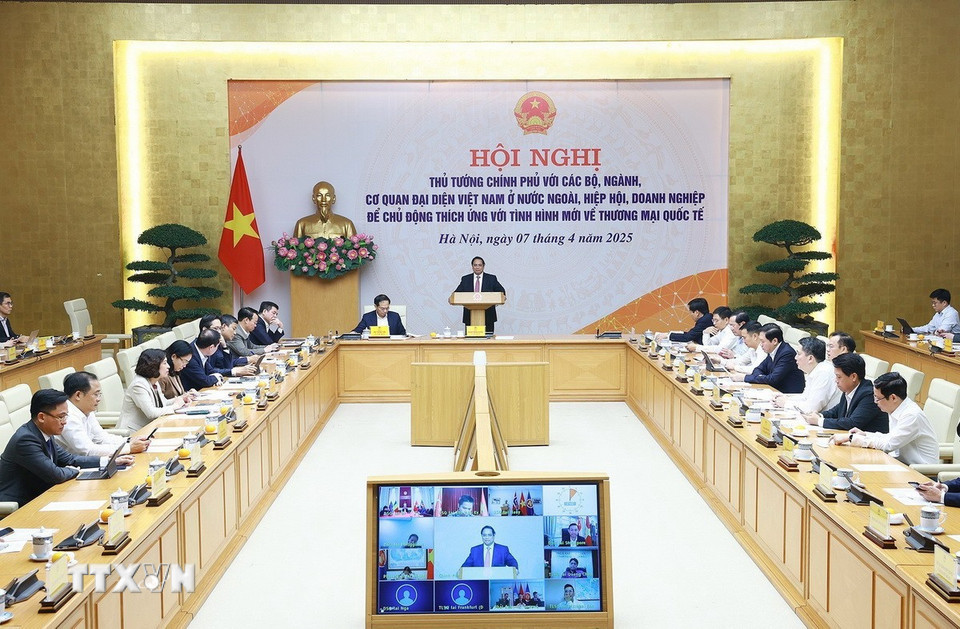
Prime Minister Pham Minh Chinh has emphasized that Vietnam must rise stronger than ever in the face of challenges, underscoring the importance of unity, resilience, and shared determination to navigate the increasingly complex and unstable global trade landscape.
Speaking on the afternoon of April 7 at a high-level conference with ministries, government agencies, overseas diplomatic missions, business associations, and exporting enterprises, the Prime Minister laid out Vietnam’s proactive strategy for adapting to shifting international trade dynamics - particularly the impact of U.S. retaliatory tariffs.
The conference was attended by the President of the Vietnam Chamber of Commerce and Industry (VCCI), alongside leaders from export-driven sectors such as seafood, textiles, footwear, logistics, tourism, wood products, tea, coffee, cocoa, IT and software, fruits and vegetables, e-commerce, pepper, spices, cashews, and rubber.
Vietnam has overcome even greater challenges before

Addressing the threat posed by U.S. tariff measures, Prime Minister Chinh acknowledged their global economic impact, including on Vietnam - a developing, transitioning economy with a modest scale and high openness, making it particularly vulnerable to global fluctuations.
Yet he expressed confidence in Vietnam’s capacity to adapt.
“Vietnam has faced even greater challenges in the past - from our national struggle for independence, to rebuilding the country from scratch, and most recently, the COVID-19 pandemic,” he noted.
“Today, our country is mature and strong enough to respond flexibly to any shifts in the global and regional landscape. Exports are a key driver of growth, but not the only one. The U.S. is our largest export market, but not the only market,” the Prime Minister stated.
He reiterated that Vietnam’s growth target of over 8% in 2025 remains unchanged, laying the groundwork for double-digit growth in the following years.
The Prime Minister stressed that the tougher the situation becomes, the more united the country must be. He viewed current challenges as an opportunity to restructure the economy, diversify markets, and expand supply chains.
Regarding the U.S. retaliatory tariff policy, he directed relevant ministries and agencies to closely follow developments and prepare for every possible tax scenario.
The Vinh